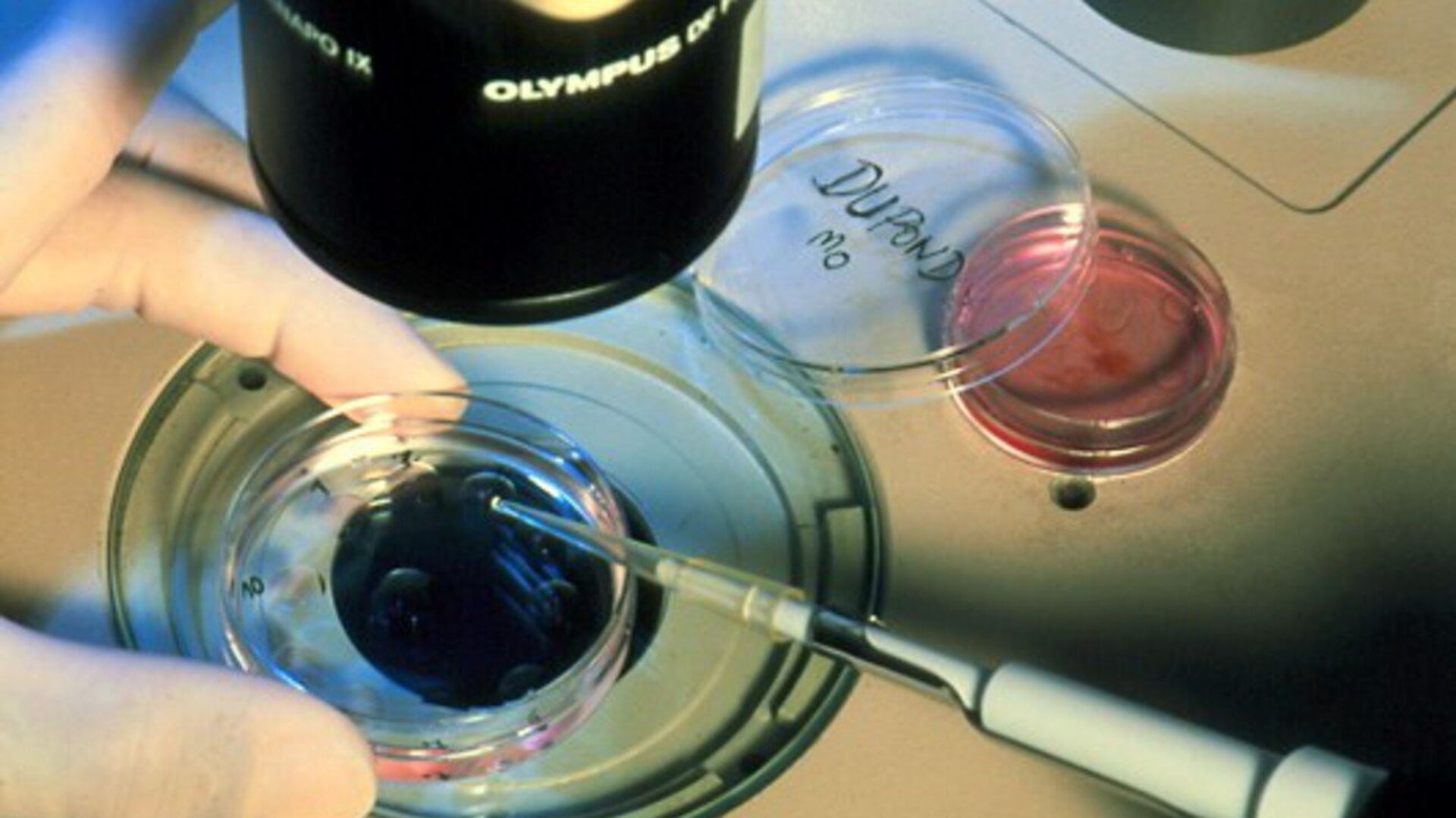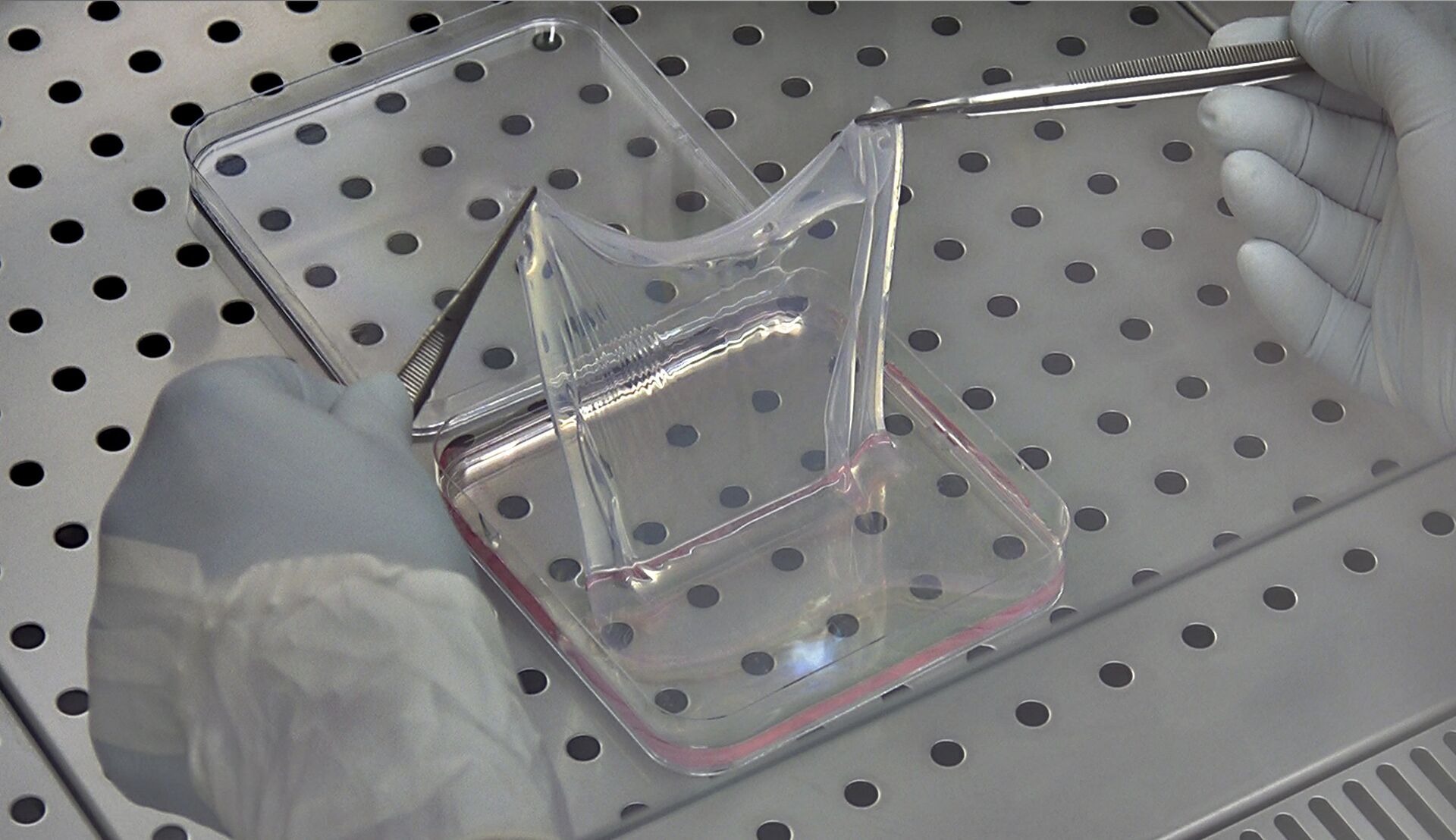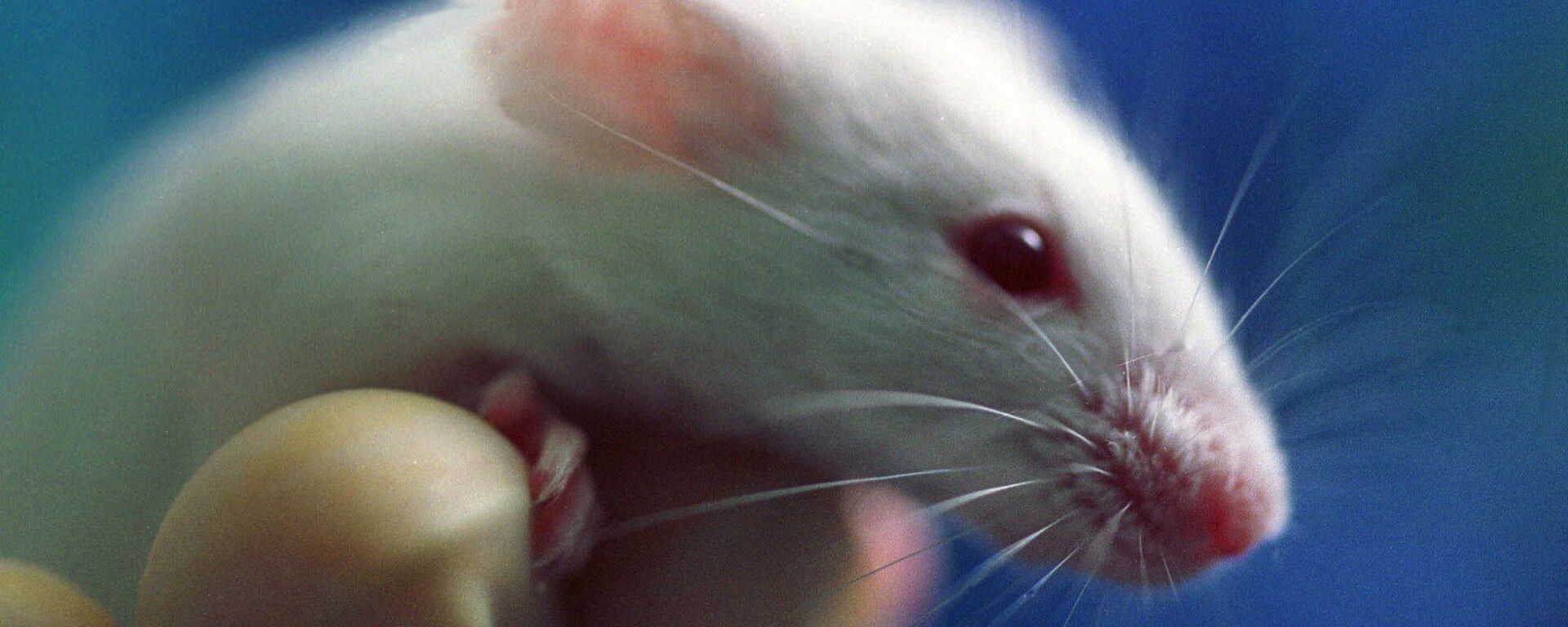https://sputnikglobe.com/20220418/embryonic-like-human-cells-created-by-chemicals-may-be-used-for-regenerative-healing---chinese-1094858505.html
Embryonic-Like Human Cells Created By Chemicals May Be Used For Regenerative Healing - Chinese Study
Embryonic-Like Human Cells Created By Chemicals May Be Used For Regenerative Healing - Chinese Study
Sputnik International
Findings by the Chinese scientists could prove useful for cultivating human cells as part of the successful development of regenerative therapeutic strategies... 18.04.2022, Sputnik International
2022-04-18T12:30+0000
2022-04-18T12:30+0000
2022-04-18T12:35+0000
china
stem cells
https://cdn1.img.sputnikglobe.com/img/101557/11/1015571118_0:81:1301:812_1920x0_80_0_0_ae0590a8358b72f36e8e8cde4b72ec99.jpg
Chinese scientists have reprogrammed human somatic cells back into pluripotent stem cells - an "adult" version of an early embryonic cell - using chemical molecules alone.What makes the pluripotent stem cells important is that they possess the capacity to self-renew by dividing. Accordingly, they can give rise to any cell the body needs.The breakthrough chemical cellular reprogramming technique was developed by a group of researchers led by Deng Hongkui from Peking University, with findings published in Nature magazine on 13 April.The scientists had previously studied lower animals like axolotl - a salamander species used extensively in scientific research due to their ability to regenerate limbs, gills and parts of their eyes and brains.The team determined that human somatic cells could experience plastic transformations under the influence of certain chemical molecules. The study singled out a group of chemicals that can transform the cells back to the state of pluripotent stem exhibiting embryonic stem cell features. Before they could achieve success, the researchers had to take out of the equation a molecular pathway called JNK. The latter controls a number of cellular processes, including proliferation and embryonic development. JNK (The c-Jun N-terminal kinase) pathway acted as a major barrier to chemical reprogramming, explained the team. Accordingly, it was important to inhibit the JNK to create cell plasticity and a regeneration-like program, said the study.The chemical reprogramming achieved as a result of the research is "safer, simpler and easier to be standardised and used clinically" than previous approaches, said Deng, the co-corresponding author of the paper, entitled, “Chemical reprogramming of human somatic cells to pluripotent stem cells.”Among the stated benefits of the technique is that it can be used to develop biomedicine knowhow for cultivating human cells of various functions in the treatment of critical illnesses.Paving Way for Organ RegrowthA team of scientists have managed to produce the youngest human cells in vitro, with the results of their research promising good news for millions of people requiring organ transplants around the world.Using advanced single-cell sequencing technologies of China’s BGI Group genome research organisation, the international team of researchers from China, Britain and Bangladesh discovered a rapid and controllable method to convert pluripotent stem cells, or an "adult" version of early embryonic cells, back to a more "juvenile" version of cells. These latter cells recreate the developmental potential of a fertilised egg after only three divisions in its developmental stage.The study, published in the peer-reviewed journal Nature, explained that totipotent 8-cell stage embryo-like cells are the youngest human cells acquired in vitro ever known.The "totipotent" cells have the potential to create all types of cells within embryonic and extra-embryonic tissues, according to one of the corresponding authors of the paper, Li Wenjuan, from the Chinese Academy of Sciences."These cells can not only differentiate into placental tissue but also potentially develop into more mature organs," Li said.Accordingly, the cells could be used for individualised organ regeneration, without the need to identify matching donors.The breakthrough research could provide a new in vitro research system beneficial in studying human embryonic development, treating early developmental-related diseases, or determining treatments to avoid pregnancy loss.The researchers had also transplanted the 8-cell stage cells subcutaneously into adult mice. The cells were then analysed using BGI’s single-cell genomic analysis, to analyse their ‘totipotent’ ability to create the cells involved in generating placenta in vivo.According to Nature magazine, the relevant study had received an ethical review.
https://sputnikglobe.com/20200519/scientists-successfully-create-most-advanced-hybrid-mouse-human-chimera-yet-1079358071.html
china
Sputnik International
feedback@sputniknews.com
+74956456601
MIA „Rossiya Segodnya“
2022
News
en_EN
Sputnik International
feedback@sputniknews.com
+74956456601
MIA „Rossiya Segodnya“
Sputnik International
feedback@sputniknews.com
+74956456601
MIA „Rossiya Segodnya“
china, stem cells
Embryonic-Like Human Cells Created By Chemicals May Be Used For Regenerative Healing - Chinese Study
12:30 GMT 18.04.2022 (Updated: 12:35 GMT 18.04.2022) Findings by the Chinese scientists could prove useful for cultivating human cells as part of the successful development of regenerative therapeutic strategies in the treatment of various critical illnesses.
Chinese scientists have
reprogrammed human somatic cells back into pluripotent stem cells - an "adult" version of an early embryonic cell - using chemical molecules alone.
What makes the pluripotent stem cells important is that they
possess the capacity to self-renew by dividing. Accordingly, they can give rise to any cell the body needs.
The breakthrough chemical cellular reprogramming technique was developed by a group of researchers led by Deng Hongkui from Peking University, with findings
published in Nature magazine on 13 April.
The scientists had previously studied lower animals like axolotl - a salamander species used extensively in scientific research due to their ability to regenerate limbs, gills and parts of their eyes and brains.
The team determined that human somatic cells could experience plastic transformations under the influence of certain chemical molecules.
The study singled out a group of chemicals that can transform the cells back to the state of pluripotent stem exhibiting embryonic stem cell features. Before they could achieve success, the researchers had to take out of the equation a molecular pathway called JNK. The latter controls a number of cellular processes, including proliferation and embryonic development. JNK (The c-Jun N-terminal kinase) pathway acted as a major barrier to chemical reprogramming, explained the team. Accordingly, it was important to inhibit the JNK to create cell plasticity and a regeneration-like program, said the study.
The chemical reprogramming achieved as a result of the research is "safer, simpler and easier to be standardised and used clinically" than previous approaches, said Deng, the co-corresponding author of the paper, entitled, “Chemical reprogramming of human somatic cells to pluripotent stem cells.”
Among the stated benefits of the technique is that it can be used to develop biomedicine knowhow for cultivating human cells of various functions in the treatment of critical illnesses.
Paving Way for Organ Regrowth
A team of scientists have managed to produce the youngest human cells in vitro, with the results of their
research promising good news for millions of people requiring organ transplants around the world.
Using advanced single-cell sequencing technologies of China’s BGI Group genome research organisation, the international team of researchers from China, Britain and Bangladesh discovered a rapid and controllable method to convert pluripotent stem cells, or an "adult" version of early embryonic cells, back to a more "juvenile" version of cells. These latter cells recreate the developmental potential of a fertilised egg after only three divisions in its developmental stage.
The study, published in the peer-reviewed journal Nature, explained that totipotent 8-cell stage embryo-like cells are the youngest human cells acquired in vitro ever known.
The "totipotent" cells have the potential to create all types of cells within embryonic and extra-embryonic tissues, according to one of the corresponding authors of the paper, Li Wenjuan, from the Chinese Academy of Sciences.
"These cells can not only differentiate into placental tissue but also potentially develop into more mature organs," Li said.
Accordingly, the cells could be used for individualised organ regeneration, without the need to identify matching donors.
The breakthrough research could provide a new in vitro research system beneficial in studying human embryonic development, treating early developmental-related diseases, or determining treatments to avoid pregnancy loss.
The researchers had also transplanted the 8-cell stage cells subcutaneously into adult mice. The cells were then analysed using BGI’s single-cell genomic analysis, to analyse their ‘totipotent’ ability to create the cells involved in generating placenta in vivo.
According to Nature magazine, the relevant study had received an ethical review.



